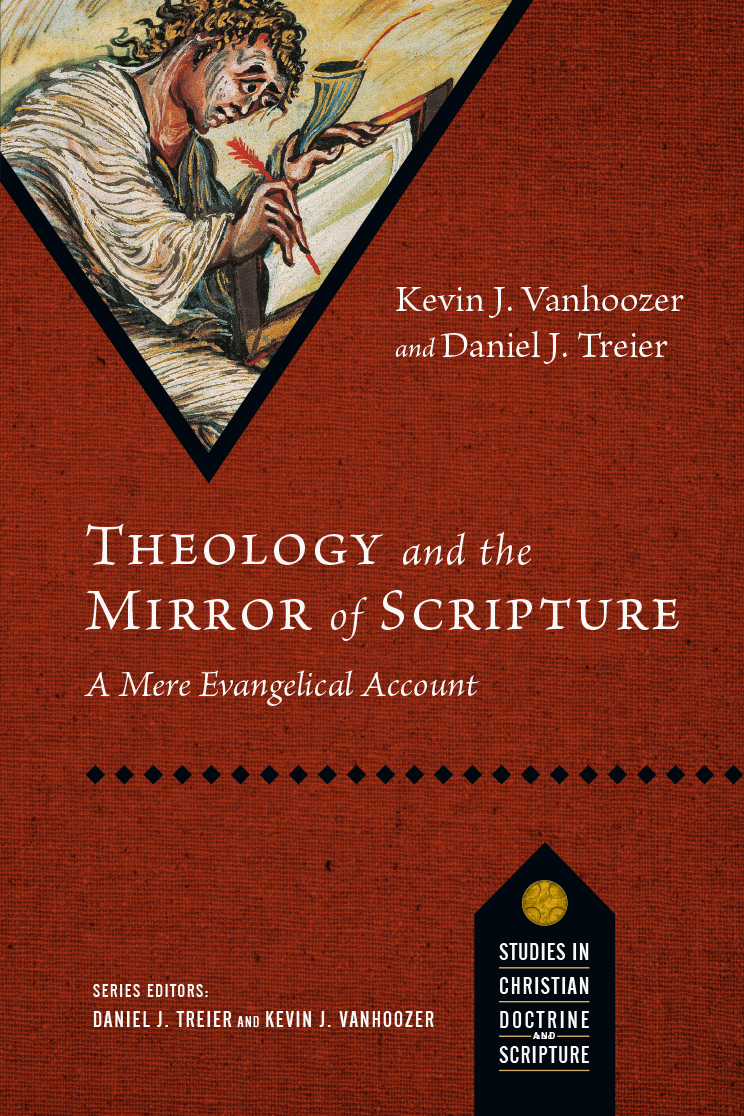Vanhoozer and Treier: Theology and the Mirror of Scripture
 Kevin J. Vanhoozer and Daniel J. Treier, Theology and the Mirror of Scripture: A Mere Evangelical Account, Studies in Christian Doctrine and Scripture series (Downers Grove: IVP Academic, 2015), 298 pages.
Kevin J. Vanhoozer and Daniel J. Treier, Theology and the Mirror of Scripture: A Mere Evangelical Account, Studies in Christian Doctrine and Scripture series (Downers Grove: IVP Academic, 2015), 298 pages.
Kevin J. Vanhoozer is Research Professor of Systematic Theology at Trinity Evangelical Divinity School in Deerfield, Illinois. He is the author of many books, several of which are recent works, including Remythologizing Theology: Divine Action, Passion and Authorship (Cambridge University Press, 2012), and Faith Speaking Understanding: Performing the Drama of Doctrine (Westminster John Knox Press, 2014). Daniel J. Treier is Blanchard Professor of Theology at Wheaton College in Wheaton, Illinois. He is the author of three books, including Virtue and the Voice of God: Toward Theology as Wisdom (Eerdmans, 2006) and Introducing Theological Interpretation of Scripture (Baker Academic, 2008), and Proverbs & Ecclesiastes (Brazos Press, 2011).
The present situation of theology in general calls for a fresh, galvanizing account of the ways in which evangelical theology can, and should, “mirror” the teaching of Scripture. In spite of contemporary trends toward fragmentation and factionalism, these authors assert that we can preserve the elusive center of evangelical theology, and perhaps even redeem the label, by retrieving the original meaning of it. The most basic boundaries marking the way of this healthy center is formed around a theologically faithful, ecclesiastically habitable approach to Scripture and doctrine. This book seeks to do just that. Evangelicalism, in their understanding, refers to a guiding hope and eschatological reality, not an already-accomplished achievement.
Can the elusive center of evangelical theology be preserved?
Perceptions that evangelicalism is crumbling or chaotic reflect at least four recent developments, which identify challenges that any evangelical theology must address: 1) more robust academic engagement, 2) an increased awareness of the tradition in the creeds, texts, and practices of early Christianity, 3) an interest in global Christianity, and 4) interfaces with emergent Christianity and culture. A central challenge for evangelical theology involves pursuing newfound engagement with different traditions, as the era of Reformed hegemony is now over (35). While the doctrine of the Trinity, and God’s self-revelation by Word and Spirit are vital components of evangelical theology, the doctrines of Scripture and the Holy Spirit increasingly reveal rather than resolve differences within the large evangelical umbrella.
Category: Biblical Studies, Winter 2017


